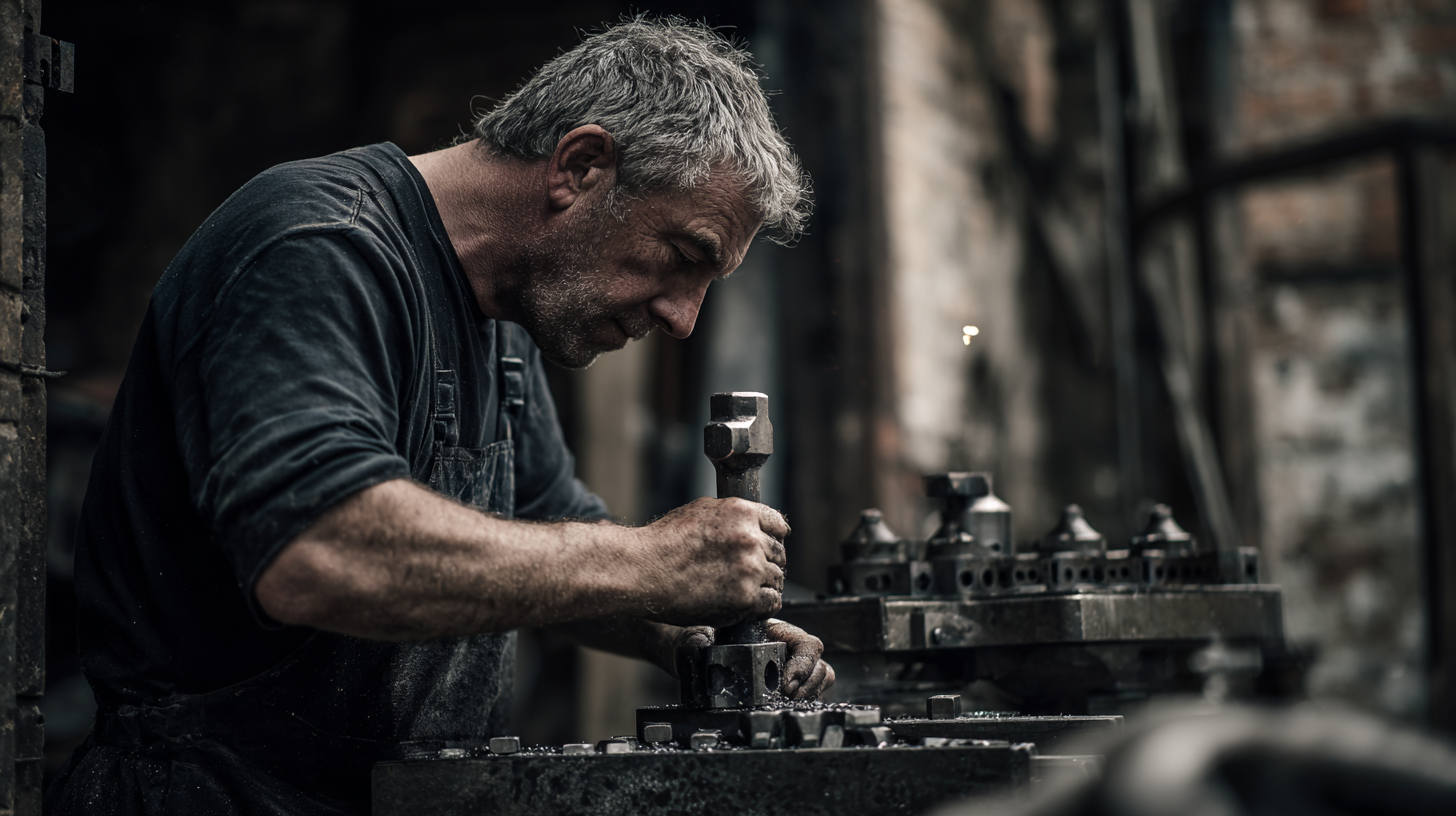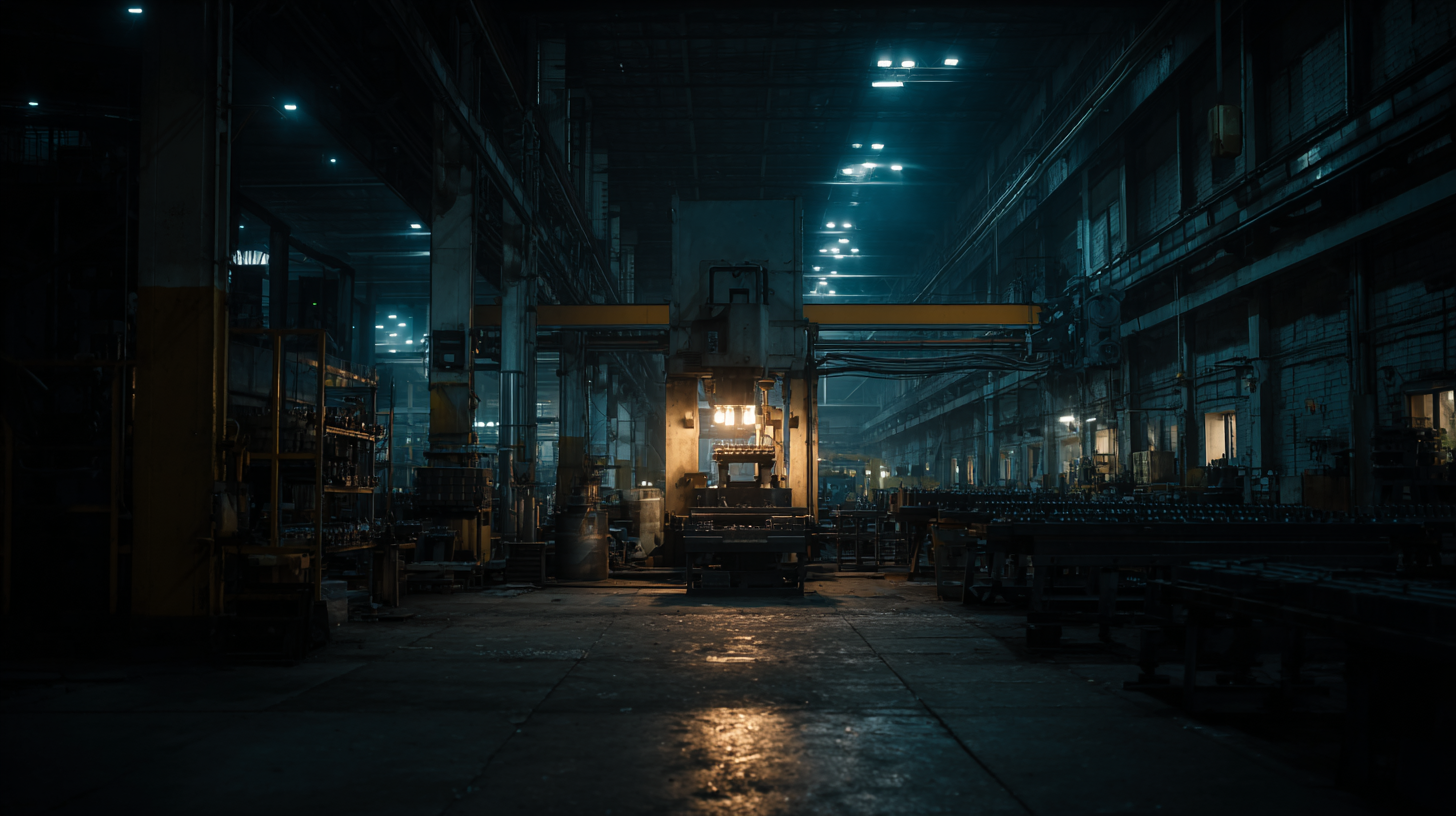

In the ever-evolving manufacturing landscape, selecting the right die casters is crucial for ensuring product quality, cost-efficiency, and timely delivery. According to a recent industry report by Grand View Research, the global die casting market is projected to reach USD 88.57 billion by 2025, growing at a CAGR of 5.6% from 2019 to 2025. This growth underscores the importance of finding reliable die casters that not only meet technical specifications but also adhere to innovative manufacturing practices. As demand for high-performance components increases across sectors such as automotive, aerospace, and consumer goods, the need for manufacturers to partner with top-tier die casters has never been more critical. In this blog, we will unveil seven secrets to help you identify the best die casters in the industry, ensuring your production processes are both efficient and sustainable.

Understanding the die casting process is crucial when selecting the right die caster for your project. Die casting is a manufacturing process that involves forcing molten metal into a mold cavity under high pressure. This technique produces parts with exceptional precision, intricate shapes, and smooth surfaces, making it a preferred choice for various industries such as automotive, aerospace, and consumer goods. Familiarizing yourself with this process not only helps you understand the quality and efficiency of potential partners but also allows you to better communicate your requirements and expectations.
When assessing die casters, it's vital to evaluate their expertise in the die casting process and the type of materials they work with. Different materials can yield varied results in terms of durability, weight, and cost. A knowledgeable die caster will be able to guide you through the selection of materials and techniques that best suit your project's needs. Additionally, understanding the entire cycle—from mold design to production and finishing—can help you identify a caster who is committed to quality assurance and has a robust quality control system in place. Choosing the right partner can significantly impact your project's success, making it essential to grasp the fundamentals of the die casting process.
When searching for the best die casters in the industry, evaluating their quality standards is crucial for ensuring the products meet your specifications. Certifications are a reliable indicator of a die caster’s commitment to excellence. Look for well-known certifications such as ISO 9001, which demonstrates a company’s ability to consistently provide products that meet customer and regulatory requirements. Furthermore, certifications in environmental management, like ISO 14001, can indicate a die caster's dedication to sustainable practices, which is increasingly important in today’s market.
In addition to standard certifications, it is wise to inquire about specific industry-related qualifications. For example, certifications from organizations like ASM International or the Aluminum Association suggest that a die caster possesses specialized knowledge and adheres to industry best practices. Assessing these credentials not only reflects the technical proficiencies of a die caster but also their willingness to invest in continuous improvement. Companies showcasing robust quality assurance processes and relevant certifications are likely to deliver reliable and superior die casting products, aligning with your project goals.

The die casting industry is on the brink of transformation as we approach 2025, driven by innovative technologies and shifting market demands. Automation, particularly through the use of robotics, is set to redefine manufacturing processes. By reducing labor costs and increasing precision, automated die casting not only streamlines production but also enhances product quality. Companies embracing these advancements are able to adapt quickly to changing consumer preferences, resulting in a more agile supply chain.

Additionally, the integration of smart manufacturing systems is making waves in die casting operations. With the rise of the Internet of Things (IoT), manufacturers can now monitor and optimize their processes in real-time, leading to greater efficiency and reduced waste. This data-driven approach enables die casters to predict equipment failures and schedule maintenance proactively, further minimizing downtime. As sustainability becomes a top priority for industries worldwide, die casters adopting eco-friendly practices and materials are positioned to lead the charge toward a greener future.
When it comes to selecting the best die casters in the industry, customer feedback plays a pivotal role in influencing your decision. Reviews and testimonials provide invaluable insights into the experiences of other clients, shedding light on the quality of work, reliability, and overall customer satisfaction. Before making a choice, it’s essential to delve into these reviews to gauge the caster’s reputation. Are clients praising the precision of their work? Is there a consistent emphasis on timely delivery? These factors can significantly impact your project's success.
Moreover, analyzing the patterns within testimonials can highlight strengths and weaknesses that may not be evident from promotional material alone. Look for detailed feedback rather than generic comments; specifics such as how a company's team handled challenges or their responsiveness to client needs can give you a clearer picture. Engaging with previous customers, if possible, can further enrich your understanding. This approach ensures you select a die caster who aligns with your expectations, ultimately aiding in the realization of your project goals.
| Customer Feedback Dimension | Rating (Out of 5) | Number of Reviews | Common Feedback Themes |
|---|---|---|---|
| Quality of Casting | 4.7 | 150 | Exceptional Finish, Durable Products |
| Customer Service | 4.5 | 120 | Responsive Support, Personalized Service |
| Timeliness of Delivery | 4.6 | 90 | On-Time Shipping, Quick Turnaround |
| Pricing | 4.2 | 110 | Competitive Rates, Value for Money |
| Technical Expertise | 4.8 | 130 | Innovative Solutions, Skilled Technicians |
When seeking the best die casters in the industry, clear communication is paramount. Building strong partnerships hinges on your ability to articulate your requirements effectively. Start by creating a comprehensive list of your project specifications, including material preferences, production volumes, and desired tolerances. This foundational step will not only streamline the selection process but also allow potential die casters to assess their capabilities in satisfying your needs.
Furthermore, engage in open dialogue with potential die casting partners. Discuss their previous experiences, ask for references, and inquire about their production capabilities and quality control measures. This two-way communication fosters trust and helps establish a collaborative atmosphere. As you explore options, be transparent about your goals and timelines. This level of honesty encourages die casters to provide realistic feedback, ensuring that both parties have aligned expectations from the onset. By prioritizing clear and honest communication, you lay the groundwork for a successful and long-lasting partnership.
